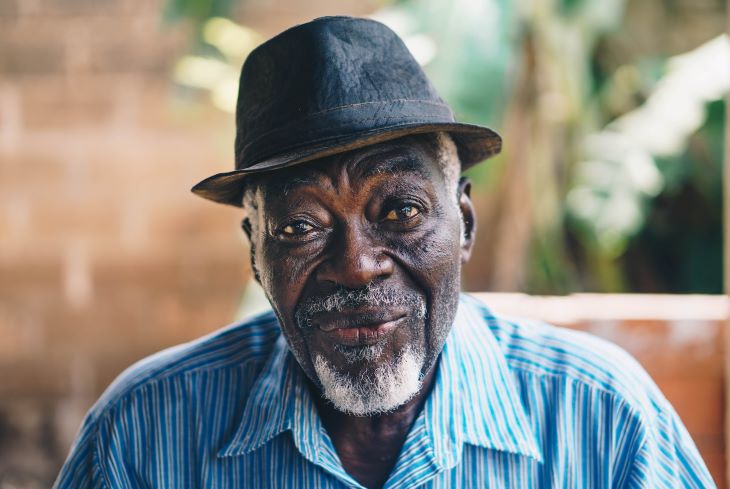In 2020, in the county where Shepherd Bush is located – Hammersmith and Fulham, London – 67% or 1,031 opiate and/or cocaine users were not in treatment for addiction.
Only 863 people within this bracket were in treatment at a drug rehabilitation services [1].
290 people were in treatment for an alcohol addiction, but 80.7% [2] of dependent drinkers were not undergoing treatment.

Alcohol addiction can be described as a dependency or reliance on alcohol to function as normal.
Alcohol consumption may be prioritised over important obligations such as work.
People who are addicted to alcohol will often need to drink more to achieve the same effect and can be chemically addicted to alcohol – meaning that the body itself is dependent on alcohol.
This can cause physical withdrawal symptoms when people stop drinking, including trembling, sweating and nausea.
At Rehab 4 Addiction, we offer free advice from a team of non-judgemental professionals, many of whom are in recovery and understand how hard it can be to change your relationship with addiction.
For more information about rehab in Shepherd’s Bush, simply reach out to our 24/7, confidential hotline on 0800 140 4690.

An intervention is a conversation or discussion undertaken with a person struggling with addiction, with the aim of encouraging the individual to attempt to overcome addiction to alcohol or other substances.
The CRAFT or, Community Reinforcement and Family Training approach to changing an individual’s addiction habits involves encouragement and praise from family or friends when the individual is able to show control or chooses not to use a substance or alcohol.
The CRAFT approach aims to help the individual admit that there is a problem with their substance or alcohol and encourage them to undertake treatment.
Importantly, this approach does not involve criticism of the individual when drugs or alcohol are consumed, but instead encourages family and friends to allow the individual to experience any negative consequences of the addictive behaviour.
Rehab in Shepherd’s bush can help you or your loved one to recover from addiction, and maintain a life of sobriety.

Drug and alcohol rehabilitation involves a treatment programme, usually provided in a residential environment, that aims to help people suffering from addiction to no longer depend on these substances.
Rehabilitation programs are typically intensive and are carried out under supervision of professionals.
Tools and coping strategies are taught to help a person recovering from addiction to learn to function without the need for alcohol or drug use.
The length and duration of treatment programmes can vary depending on the needs of the person seeking treatment.
In this way, the rehabilitation process is tailored to the individual.
At Rehab 4 Addiction, we offer free advice from a team of non-judgemental professionals, many of whom are in recovery and understand how hard it can be to change your relationship with addiction.
For more information about rehab in Shepherd’s Bush, simply reach out to our 24/7, confidential hotline on 0800 140 4690.

There are a number of options available for those seeking rehabilitation and costs can vary significantly depending on the type of treatment centre or facility.
For a month’s residence in an up-scale, luxury treatment centre, costs can reach up to around £74,000, with features such as spas and food prepared by on-site chefs.
More commonly, and for a lower price, private inpatient facilities for addiction treatment can cost around £500 per day, or £15,000 for a 30-day program.
This number is variable, with some private treatment centres costing £1000 for a full week’s stay or £4000 for 30 days.
Home detoxing from alcohol or drugs is also a possibility, costing around £1500.

The NHS offers drug and alcohol rehabilitation in the same way it offers treatment for other health problems.
A person struggling with drug addiction can contact their GP and discuss the options available for them which may involve referral to a local drug service or treatment by the medical practice itself.
However, funding for private rehabilitation is difficult to secure on the NHS, and treatment will more likely involve counselling or self-help. In addition, wait-lists for treatment may be long.
For those struggling with alcohol addiction, rehabilitation may also be offered, however, counselling, self-help groups, CBT or cognitive behavioural therapy or medication to control withdrawals are more likely to be offered than residential rehabilitation.
There are a number of advantages and disadvantages to be considered when choosing to undergo rehabilitation.
At Rehab 4 Addiction, we offer free advice from a team of non-judgemental professionals, many of whom are in recovery and understand how hard it can be to change your relationship with addiction.
For more information about rehab in Shepherd’s Bush, simply reach out to our 24/7, confidential hotline on 0800 140 4690.

Alcohol rehabilitation programs can last for as few as 7 days, though 28-day programs are typically recommended, to allow for individuals to recover and focus on techniques and methods for handling addiction that are taught during the rehabilitation.
Research has shown that, for those struggling with addiction, at least 3 months of some kind of treatment for alcohol or drug addiction is most effective in helping a person suffering from addiction to reduce or stop their use [3].
Longer durations of treatment can allow a person to better understand their addiction and gives them the time needed to implement and practice strategies and techniques that are taught in rehabilitation facilities.

NHS treatment typically involves self-help or individual or group counselling sessions.
The NHS also offers cognitive behavioural therapy as well as medications, if required, as well as supervision if a person chooses to detox from any substances.
Generally, NHS funding for private addiction treatment in an inpatient treatment facility is difficult to acquire, and patients are more likely to receive treatment that involves self-help or group/individual counselling.
Private addiction treatment usually involves remaining in an inpatient facility for around 28 days where coping strategies, counselling, medication for substance withdrawal and round the clock supervision is available.
At Rehab 4 Addiction, we offer free advice from a team of non-judgemental professionals, many of whom are in recovery and understand how hard it can be to change your relationship with addiction.
For more information about rehab in Shepherd’s Bush, simply reach out to our 24/7, confidential hotline on 0800 140 4690.

Inpatient treatment means that you stay in a residential treatment facility for the duration of your treatment, away from home.
This can be helpful as it means that there is no access to people who might encourage the use of drugs or alcohol.
Outpatient treatment is treatment that occurs while you stay at home, it does not involve a stay in a treatment facility.
This may be better for those who require support from family or friends, or if inpatient treatment is not accessible. It can involve therapy, counselling, or self-help groups.

When an individual has been addicted to alcohol for some time, their body can develop a physical, chemical addiction to it, meaning that the body itself will have a reaction to the absence of alcohol – this is called withdrawal.
Not all individuals will experience the same symptoms of alcohol withdrawal, but the main ones include:
At Rehab 4 Addiction, we offer free advice from a team of non-judgemental professionals, many of whom are in recovery and understand how hard it can be to change your relationship with addiction.
For more information about rehab in Shepherd’s Bush, simply reach out to our 24/7, confidential hotline on 0800 140 4690.

In individuals who consume a large quantity of alcohol, or who have struggled with addiction for a long time, unsupervised withdrawal, or quitting drinking alcohol ‘cold turkey’ can be quite dangerous and occasionally fatal.
For this reason, quitting ‘cold turkey’ is not typically recommended, rather the quantity of alcohol consumed should be reduced slowly over a period of days or weeks.
Rehab in Sheperd’s Bush will ensure you withdraw from alcohol in a safe manner, overseen by medical professionals.
If an individual wants to stop drinking and attends a rehabilitation centre, they will have to cease drinking and be abstinent from alcohol.
To ensure that symptoms are not dangerous to the individual that is detoxing from alcohol, medicines can be administered that will reduce the severity of withdrawal symptoms.
Most commonly, Librium is prescribed to patients. Librium is part of a group of medicines called ‘benzodiazepines’ which are a kind of sedative medication.
They work by slowing down processes in the brain and body and are otherwise used to help people that suffer from anxiety and panic disorders.
Librium is typically prescribed over a 10-day period, though this may vary on a case-by-case basis.
During this time, patients will be closely monitored to ensure their safety as they withdraw.
Taking Librium reduces the chance that harmful side effects such as seizures will occur in the person detoxing.
After the withdrawal process is completed, it is usually followed by around 3 weeks of rehabilitation involving therapy and counselling which can help uncover and combat any underlying emotional or psychological issues that have led to addiction.
Relapse prevention is a major focus during rehabilitation. There are several kinds of relapse, including emotional relapse – where a person’s emotions and behaviours can lead to relapse, without them consciously deciding to.
Mental relapse can involve an internal struggle over wanting to consume a substance, but not wanting to at the same time.
This can eventually lead to diminished will power, and in a ‘high risk’ situation such as a party where alcohol or drugs are available, relapse may occur.
During therapy, behaviours such as poor self-care and negative thought patterns, will be discussed, and ways to avoid triggers such as these will be suggested.
Triggers such as ‘high risk’ environments or the encouragement or presence of other substance users can be identified as potential causes for relapse, so that the person can avoid the triggers in future.
Once a person has the tools to help prevent them from relapsing, they will leave the inpatient rehabilitation centre and will stand a better chance at remaining abstinent from alcohol.

Unlike alcohol or other drugs such as heroin, cocaine is not chemically, or physically addictive and an individual cannot become chemically dependent on taking it.
However, people can become psychologically addicted to cocaine in the same way they can with any other substance.
For this reason, a person seeking to stop using cocaine will not undergo a detox that is accompanied by treatments to reduce withdrawal symptoms and will be expected simply to abstain from use of the drug.
During rehabilitation for a cocaine addiction, therapy and counselling as well as coping strategies and discussing how to avoid potential triggers will be discussed.
These will help a person struggling with addiction to maintain sobriety from the drug once they leave.
At Rehab 4 Addiction, we offer free advice from a team of non-judgemental professionals, many of whom are in recovery and understand how hard it can be to change your relationship with addiction.
For more information about rehab in Shepherd’s Bush, simply reach out to our 24/7, confidential hotline on 0800 140 4690.

Heroin is chemically addictive and so causes physical symptoms during the withdrawal process.
During withdrawal a person might experience the following symptoms:
Because of these symptoms, as well as others which can be more dangerous, heroin withdrawal is usually undertaken with medication to treat the withdrawal symptoms.
Medications such as clonidine will help to ease uncomfortable or dangerous symptoms associated with withdrawal.
After withdrawal, therapy will be undertaken where an understanding of the source of the addictive behaviours will be developed.
Sometimes, maintenance therapy is more effective for withdrawing from heroin use – it involves changing the drug used to a less dangerous one, like methadone, that can be gradually reduced to reduce the risk of unpleasant or dangerous symptoms.
Understanding the reasons behind addiction as well as potential triggers for heroin use can help you to avoid future use and cope with problems without it.

Cannabis is not chemically addictive, so a person would not require medication during the detox process.
However, a person can be psychologically addicted to cannabis, which treatment at the rehabilitation centre will aim to improve.
A person with a cannabis addiction will undertake therapy and counselling to discuss the cause of the addiction as well as underlying triggers for drug use behaviours.
This will allow a person to better understand their addiction and help them to avoid using cannabis in future.
If a person feels they need to use cannabis to function socially or at work or is using it to treat mental health problems such as anxiety, the rehabilitation process can help them cope with stress and anxiety so that they can manage it without the use of cannabis.
At Rehab 4 Addiction, we offer free advice from a team of non-judgemental professionals, many of whom are in recovery and understand how hard it can be to change your relationship with addiction.
For more information about rehab in Shepherd’s Bush, simply reach out to our 24/7, confidential hotline on 0800 140 4690.

There are a number of therapies available:

Dual diagnosis describes the diagnosis of a person with a substance abuse disorder with a mental health condition.
Often, individuals suffering from drug or alcohol abuse disorders are suffering from an untreated mental health condition – e.g. Depression, BPD, Bi-Polar disorder etc.
Due to a lack of treatment, individuals may turn to drugs or alcohol to ‘self-medicate’ to ease symptoms of their mental health problem or may be more likely to engage in risk-taking behaviour that can lead to drug or alcohol use.
By diagnosing and treating the mental health condition that is associated with addictive behaviour, it can become easier to treat the addiction, as the substance is no longer required to help a person cope.
At Rehab 4 Addiction, we offer free advice from a team of non-judgemental professionals, many of whom are in recovery and understand how hard it can be to change your relationship with addiction.
For more information about rehab in Shepherd’s Bush, simply reach out to our 24/7, confidential hotline on 0800 140 4690.

Rehabilitation helps to prevent relapse by providing participants with the tools they need to understand their addiction.
Rehabilitation helps people understand their triggers for using substance, provides alternative methods to cope with difficult or challenging aspects of life, and helps treat underlying conditions that might have led a person to use alcohol or drugs.

There are a number of services available to support people who have completed a period in rehabilitation and after the completion of drug and alcohol rehabilitation in Shepherd’s Bush, you might require further help to abstain from drugs or alcohol.
Available services include:
At Rehab 4 Addiction, we offer free advice from a team of non-judgemental professionals, many of whom are in recovery and understand how hard it can be to change your relationship with addiction.
For more information about rehab in Shepherd’s Bush, simply reach out to our 24/7, confidential hotline on 0800 140 4690.

[1]- Fingertips Public Health Profiles – Office for Health Improvement and Disparities -Drug Use https://fingertips.phe.org.uk/search/drug#page/1/gid/1/ati/202/iid/91810/age/44/sex/4/cat/-1/ctp/-1/yrr/1/cid/4/tbm/1/page-options/car-do-0
[2] – Fingertips Public Health Profiles – Office for Health Improvement and Disparities – Alcohol https://fingertips.phe.org.uk/search/alcohol
[3] – Principles of Drug Addiction Treatment: A Research-Based Guide NIDA. “Principles of Effective Treatment.” National Institute on Drug Abuse, 18 Sep. 2020, https://web.archive.org/web/20220318150716/https:/nida.nih.gov/publications/principles-drug-addiction-treatment-research-based-guide-third-edition/principles-effective-treatment